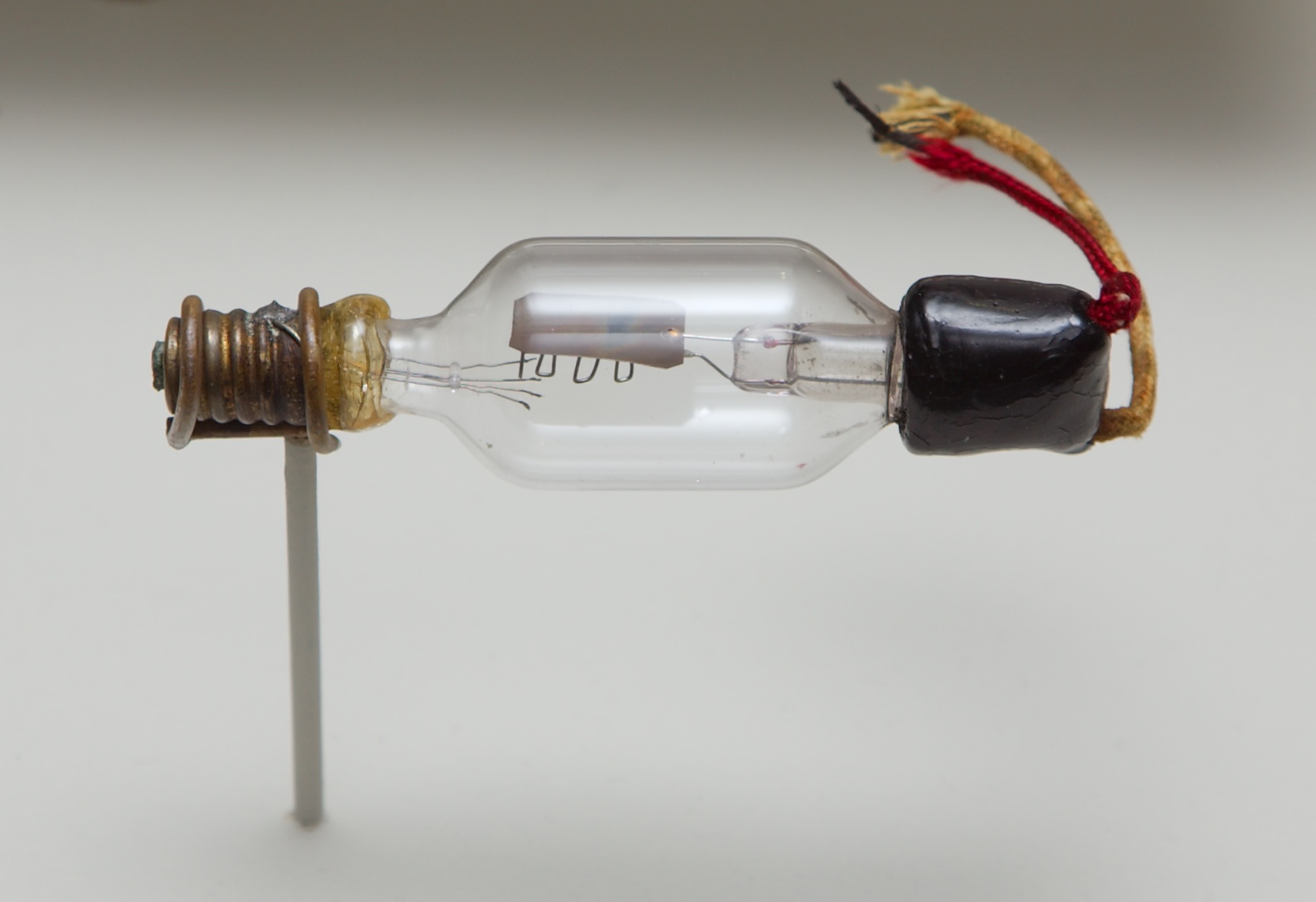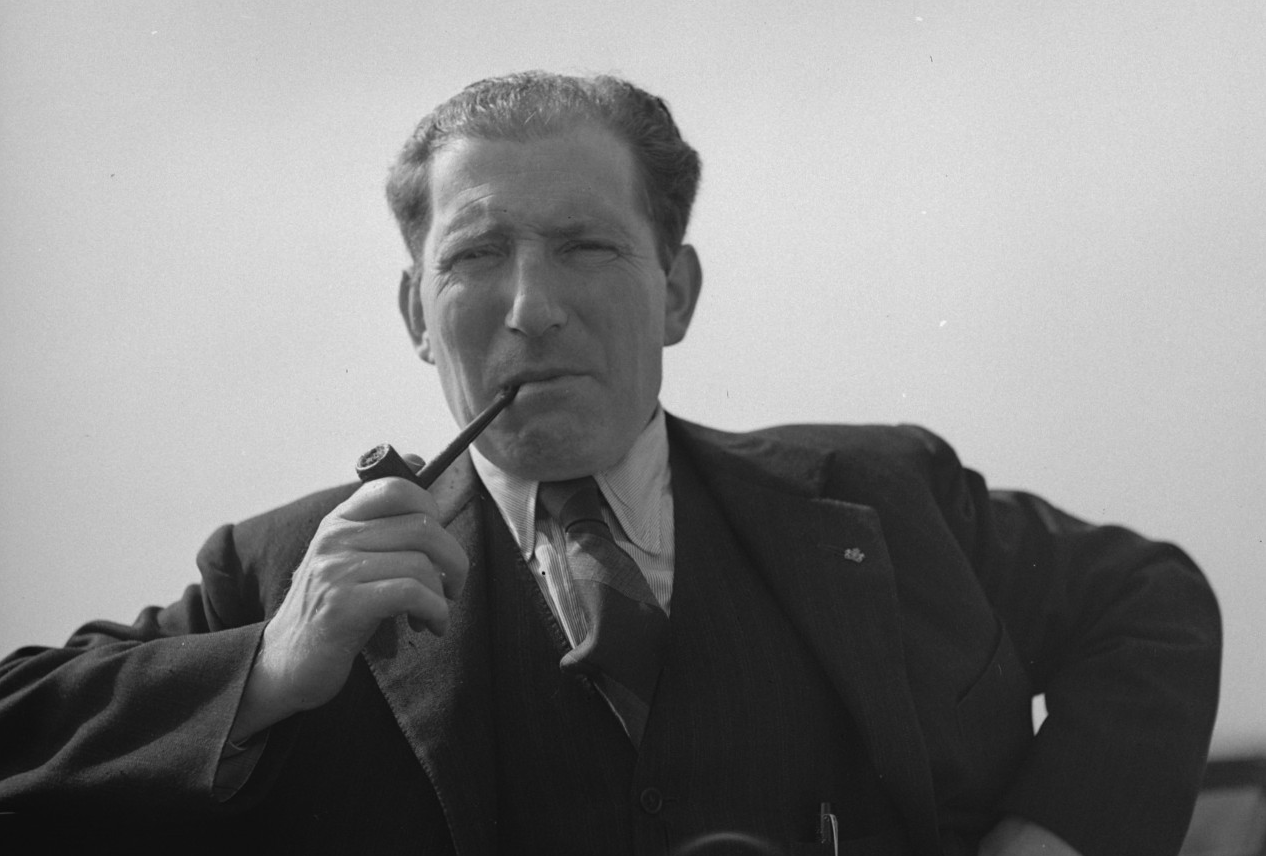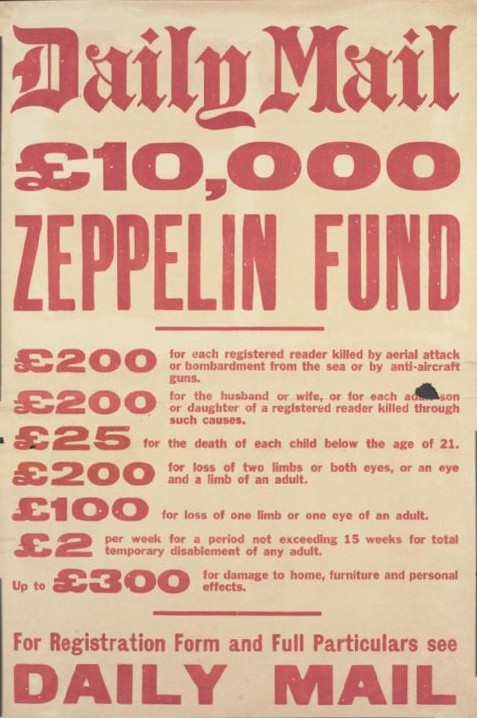|
Hanso Idzerda
Hanso Schotanus á Steringa Idzerda (26 September 1885 – 2 November 1944) was a Dutch scientist, entrepreneur and pioneer in radio technology. Between 1907 and 1917 he worked to introduce the already invented triode into radio technology. In 1919 Idzerda invented the triode IDZ-lamp, which was capable of transmitting and receiving radio messages containing the human voice. On 6 November 1919 he held the first public airing of a radio programme. His programme consisted of music, and him talking for a bit in between pieces. The PCGG transmitter he invented was capable of transmitting signals from The Hague all the way to England. Herman de Man, later to be an important author and radio maker, was present. From then on the programme aired every week. In 1922 the '' Daily Mail'' decided to sponsor Idzerda, who previously financed the operation with his own money and some donations. After the ''Daily Mail'' ceased its support Idzerda's company went bankrupt. On 2 November 1944, a ... [...More Info...] [...Related Items...] OR: [Wikipedia] [Google] [Baidu] |
Friesch Dagblad
The ''Friesch Dagblad'' (; the first word is spelled ''Fries'' in modern Dutch) is a Dutch daily newspaper founded in 1903. It covers the region of Friesland with news reports written from a protestant perspective. ''Friesch Dagblad'' and its competitor, ''Leeuwarder Courant The ''Leeuwarder Courant'' is the oldest daily newspaper in the Netherlands. Founded by Abraham Ferwerda, it first appeared in 1752. The ''Leeuwarder Courant'' was the first paper in the Dutch province Friesland and its capital Leeuwarden. It is ...'', are owned by the Mediahuis. Both newspapers publish most of the content in Dutch, with only about 5% of content in West Frisian. References External linkswww.frieschdagblad.nlWebsite Friesch Dagbladwww.fd-extra.nl.nlWebsite of the webshop Friesch Dagblad Friesch Dagblad Publications established in 1903 Mass media in Leeuwarden {{Netherlands-newspaper-stub ... [...More Info...] [...Related Items...] OR: [Wikipedia] [Google] [Baidu] |
Hans Henricus Schotanus à Steringa Idzerda
Hans may refer to: __NOTOC__ People * Hans (name), a masculine given name * Hans Raj Hans, Indian singer and politician ** Navraj Hans, Indian singer, actor, entrepreneur, cricket player and performer, son of Hans Raj Hans ** Yuvraj Hans, Punjabi actor and singer, son of Hans Raj Hans * Hans clan, a tribal clan in Punjab, Pakistan Places * Hans, Marne, a commune in France * Hans Island, administrated by Greenland and Canada Arts and entertainment * ''Hans'' (film) a 2006 Italian film directed by Louis Nero * Hans (Frozen), the main antagonist of the 2013 Disney animated film ''Frozen'' * ''Hans'' (magazine), an Indian Hindi literary monthly * ''Hans'', a comic book drawn by Grzegorz Rosiński and later by Zbigniew Kasprzak Other uses * Clever Hans, the "wonder horse" * ''The Hans India'', an English language newspaper in India * HANS device, a racing car safety device *Hans, the ISO 15924 code for Simplified Chinese script See also * Han (other) *Hans im Glüc ... [...More Info...] [...Related Items...] OR: [Wikipedia] [Google] [Baidu] |
Triode
A triode is an electronic amplifying vacuum tube (or ''valve'' in British English) consisting of three electrodes inside an evacuated glass envelope: a heated filament or cathode, a grid, and a plate (anode). Developed from Lee De Forest's 1906 Audion, a partial vacuum tube that added a grid electrode to the thermionic diode ( Fleming valve), the triode was the first practical electronic amplifier and the ancestor of other types of vacuum tubes such as the tetrode and pentode. Its invention founded the electronics age, making possible amplified radio technology and long-distance telephony. Triodes were widely used in consumer electronics devices such as radios and televisions until the 1970s, when transistors replaced them. Today, their main remaining use is in high-power RF amplifiers in radio transmitters and industrial RF heating devices. In recent years there has been a resurgence in demand for low power triodes due to renewed interest in tube-type audio systems b ... [...More Info...] [...Related Items...] OR: [Wikipedia] [Google] [Baidu] |
Radio Programme
A radio program, radio programme, or radio show is a segment of content intended for broadcast on radio. It may be a one-time production or part of a periodically recurring series. A single program in a series is called an episode. Radio networks International radio In the 1950s, a small but growing cohort of rock and pop music fans, dissatisfied with the BBC's output, would listen to Radio Luxembourg, but to some extent and probably not enough to have any impact on the BBC's monopoly and invariably only at night, when the signal from Luxembourg was stronger. During the post-1964 period, western Europe offshore radio (such as Radio Caroline broadcasting from ships at anchor or abandoned forts) helped to supply the demand for the pop and rock music. The BBC launched its own pop music station, BBC Radio 1, in 1967. The international broadcasts became highly popular in major world languages. Of particular impact were programmes by BBC World Service, Voice of America, Radio Mos ... [...More Info...] [...Related Items...] OR: [Wikipedia] [Google] [Baidu] |
PCGG
PCGG (also known as the Dutch Concerts station) was a radio station located at The Hague in the Netherlands, which began broadcasting a regular schedule of entertainment programmes on 6 November 1919. The station was established by engineer Hanso Idzerda, and is believed to have been Europe's first sustained broadcasting station, as well as one of the first stations in the world to transmit entertainment intended for a general audience. PCGG's schedule generally featured one or two evening programmes per week. Although located on the west coast of Holland, the station had a large audience across the English Channel in Great Britain. However, Idzerda ran into financial difficulties, and PCGG's licence was revoked on 11 November 1924, one month before his company, ''Nederlandsche Radio-Industrie'', shut down due to bankruptcy. History Formation Hans Idzerda was an electrical engineer, who worked with the Philips manufacturing company during World War I. (Holland was a neutral coun ... [...More Info...] [...Related Items...] OR: [Wikipedia] [Google] [Baidu] |
The Hague
The Hague ( ; nl, Den Haag or ) is a city and municipality of the Netherlands, situated on the west coast facing the North Sea. The Hague is the country's administrative centre and its seat of government, and while the official capital of the Netherlands is Amsterdam, The Hague has been described as the country's de facto capital. The Hague is also the capital of the province of South Holland, and the city hosts both the International Court of Justice and the International Criminal Court. With a population of over half a million, it is the third-largest city in the Netherlands, after Amsterdam and Rotterdam. The Hague is the core municipality of the Greater The Hague urban area, which comprises the city itself and its suburban municipalities, containing over 800,000 people, making it the third-largest urban area in the Netherlands, again after the urban areas of Amsterdam and Rotterdam. The Rotterdam–The Hague metropolitan area, with a population of approximately ... [...More Info...] [...Related Items...] OR: [Wikipedia] [Google] [Baidu] |
England
England is a country that is part of the United Kingdom. It shares land borders with Wales to its west and Scotland to its north. The Irish Sea lies northwest and the Celtic Sea to the southwest. It is separated from continental Europe by the North Sea to the east and the English Channel to the south. The country covers five-eighths of the island of Great Britain, which lies in the North Atlantic, and includes over 100 smaller islands, such as the Isles of Scilly and the Isle of Wight. The area now called England was first inhabited by modern humans during the Upper Paleolithic period, but takes its name from the Angles, a Germanic tribe deriving its name from the Anglia peninsula, who settled during the 5th and 6th centuries. England became a unified state in the 10th century and has had a significant cultural and legal impact on the wider world since the Age of Discovery, which began during the 15th century. The English language, the Anglican Church, and Engli ... [...More Info...] [...Related Items...] OR: [Wikipedia] [Google] [Baidu] |
Herman De Man
Salomon Herman "Sal" Hamburger (11 July 1898 – 14 November 1946), known under his pseudonym Herman de Man, was a Dutch novelist. Life and work Salomon Herman Hamburger was born on 11 July 1898 in Woerden in the Netherlands. De Man, son of businessman Herman Salomon Hamburger and Sarah Cohen Schavrien, grew up in the Lopikerwaard area. His family has lived in Woerden, Benschop, Oudewater and Gouda. Many of his later novels are set in the places where he grew up. His novel ''The rising waters'', which appeared in 1991, the 30th print, is located in the Lopikerwaard. The book received wide publicity, partly because it was made into a 1986 eight-part television series: six million viewers viewed this series that year. It was then repeated several times, most recently in 2011. De Man died in an airplane crash on 14 November 1946 during a third unsuccessful landing attempt of a Douglas C-47 of KLM. The aircraft was following a course correction and crashed to the ground. All 21 ... [...More Info...] [...Related Items...] OR: [Wikipedia] [Google] [Baidu] |
Daily Mail
The ''Daily Mail'' is a British daily middle-market tabloid newspaper and news websitePeter Wilb"Paul Dacre of the Daily Mail: The man who hates liberal Britain", ''New Statesman'', 19 December 2013 (online version: 2 January 2014) published in London. Founded in 1896, it is the United Kingdom's highest-circulated daily newspaper. Its sister paper '' The Mail on Sunday'' was launched in 1982, while Scottish and Irish editions of the daily paper were launched in 1947 and 2006 respectively. Content from the paper appears on the MailOnline website, although the website is managed separately and has its own editor. The paper is owned by the Daily Mail and General Trust. Jonathan Harmsworth, 4th Viscount Rothermere, a great-grandson of one of the original co-founders, is the current chairman and controlling shareholder of the Daily Mail and General Trust, while day-to-day editorial decisions for the newspaper are usually made by a team led by the editor, Ted Verity, who succ ... [...More Info...] [...Related Items...] OR: [Wikipedia] [Google] [Baidu] |
V-2 Rocket
The V-2 (german: Vergeltungswaffe 2, lit=Retaliation Weapon 2), with the technical name ''Aggregat 4'' (A-4), was the world’s first long-range guided ballistic missile. The missile, powered by a liquid-propellant rocket engine, was developed during the Second World War in Nazi Germany as a "vengeance weapon" and assigned to attack Allied cities as retaliation for the Allied bombings of German cities. The rocket also became the first artificial object to travel into space by crossing the Kármán line (edge of space) with the vertical launch of MW 18014 on 20 June 1944. Research into military use of long-range rockets began when the graduate studies of Wernher von Braun attracted the attention of the Wehrmacht. A series of prototypes culminated in the A-4, which went to war as the . Beginning in September 1944, over 3,000 were launched by the Wehrmacht against Allied targets, first London and later Antwerp and Liège. According to a 2011 BBC documentary, the attacks ... [...More Info...] [...Related Items...] OR: [Wikipedia] [Google] [Baidu] |
1885 Births
Events January–March * January 3– 4 – Sino-French War – Battle of Núi Bop: French troops under General Oscar de Négrier defeat a numerically superior Qing Chinese force, in northern Vietnam. * January 4 – The first successful appendectomy is performed by Dr. William W. Grant, on Mary Gartside. * January 17 – Mahdist War in Sudan – Battle of Abu Klea: British troops defeat Mahdist forces. * January 20 – American inventor LaMarcus Adna Thompson patents a roller coaster. * January 24 – Irish rebels damage Westminster Hall and the Tower of London with dynamite. * January 26 – Mahdist War in Sudan: Troops loyal to Mahdi Muhammad Ahmad conquer Khartoum; British commander Charles George Gordon is killed. * February 5 – King Leopold II of Belgium establishes the Congo Free State, as a personal possession. * February 9 – The first Japanese arrive in Hawaii. * February 16 – Charles D ... [...More Info...] [...Related Items...] OR: [Wikipedia] [Google] [Baidu] |
1944 Deaths
Events Below, the events of World War II have the "WWII" prefix. January * January 2 – WWII: ** Free French General Jean de Lattre de Tassigny is appointed to command French Army B, part of the Sixth United States Army Group in North Africa. ** Landing at Saidor: 13,000 US and Australian troops land on Papua New Guinea, in an attempt to cut off a Japanese retreat. * January 8 – WWII: Philippine Commonwealth troops enter the province of Ilocos Sur in northern Luzon and attack Japanese forces. * January 11 ** President of the United States Franklin D. Roosevelt proposes a Second Bill of Rights for social and economic security, in his State of the Union address. ** The Nazi German administration expands Kraków-Płaszów concentration camp into the larger standalone ''Konzentrationslager Plaszow bei Krakau'' in occupied Poland. * January 12 – WWII: Winston Churchill and Charles de Gaulle begin a 2-day conference in Marrakech. * January 14 – WWII: Sovi ... [...More Info...] [...Related Items...] OR: [Wikipedia] [Google] [Baidu] |









